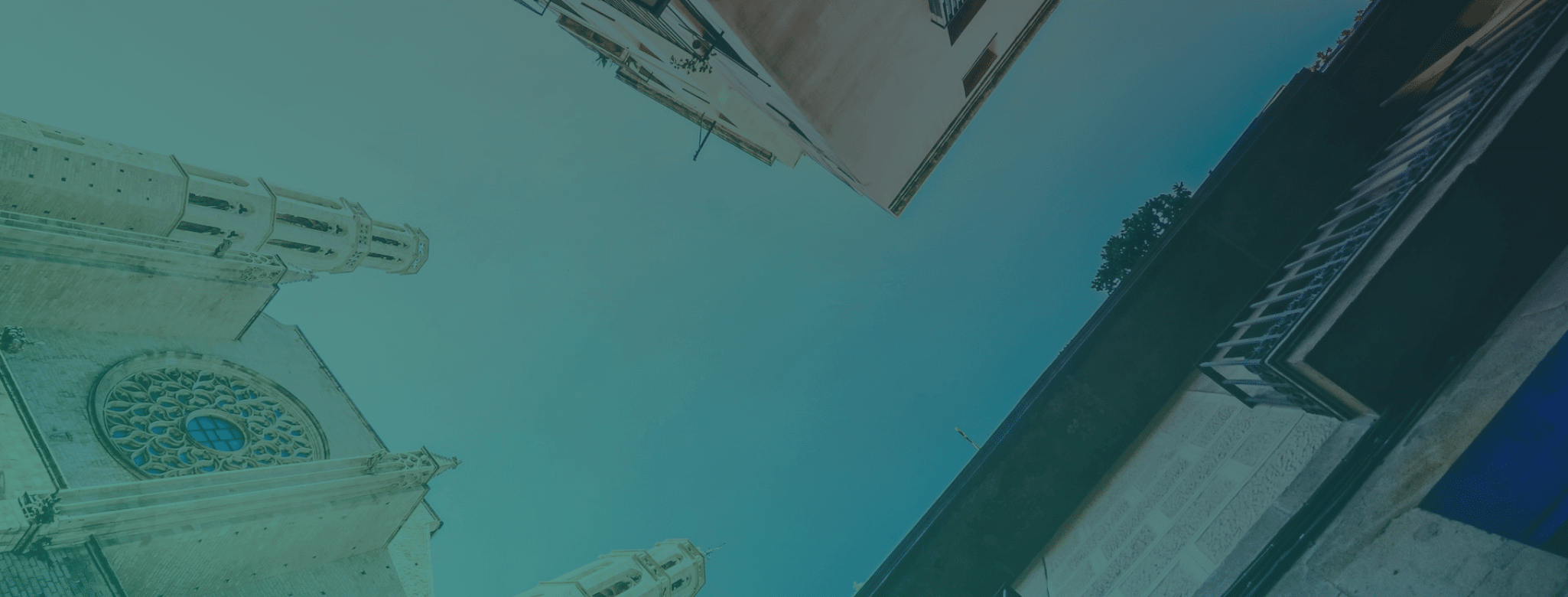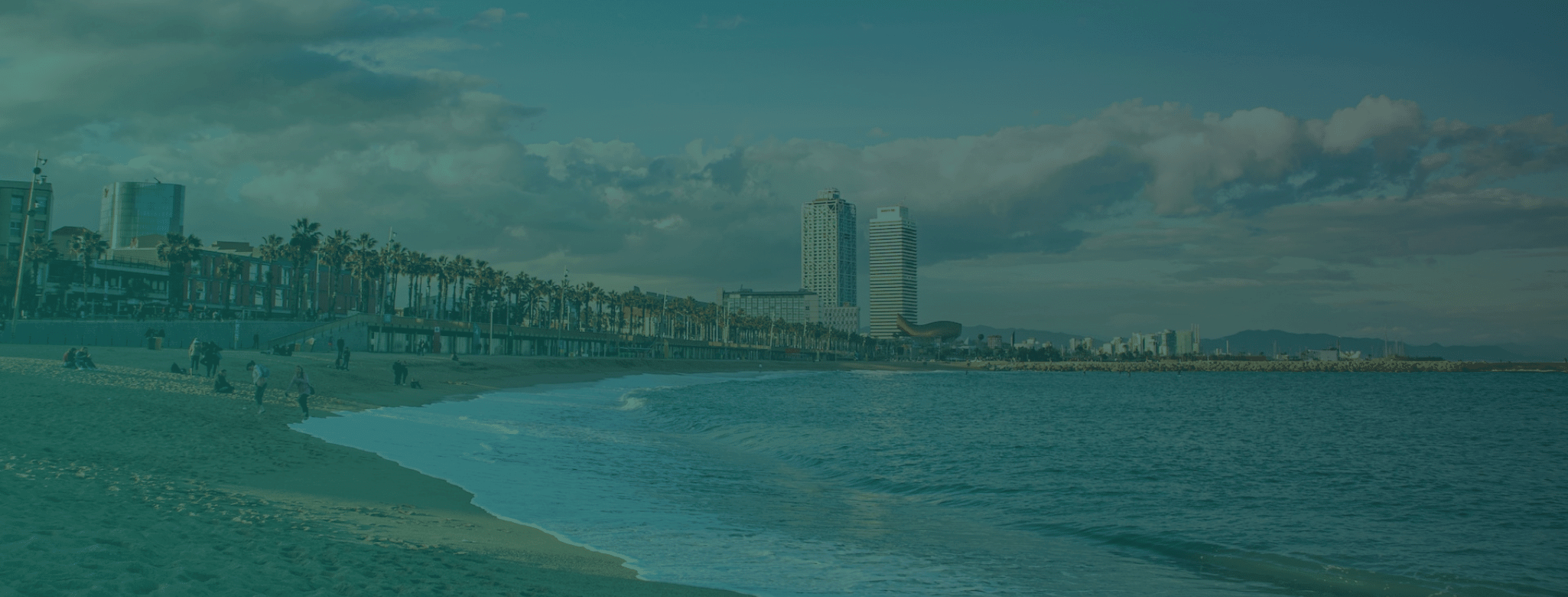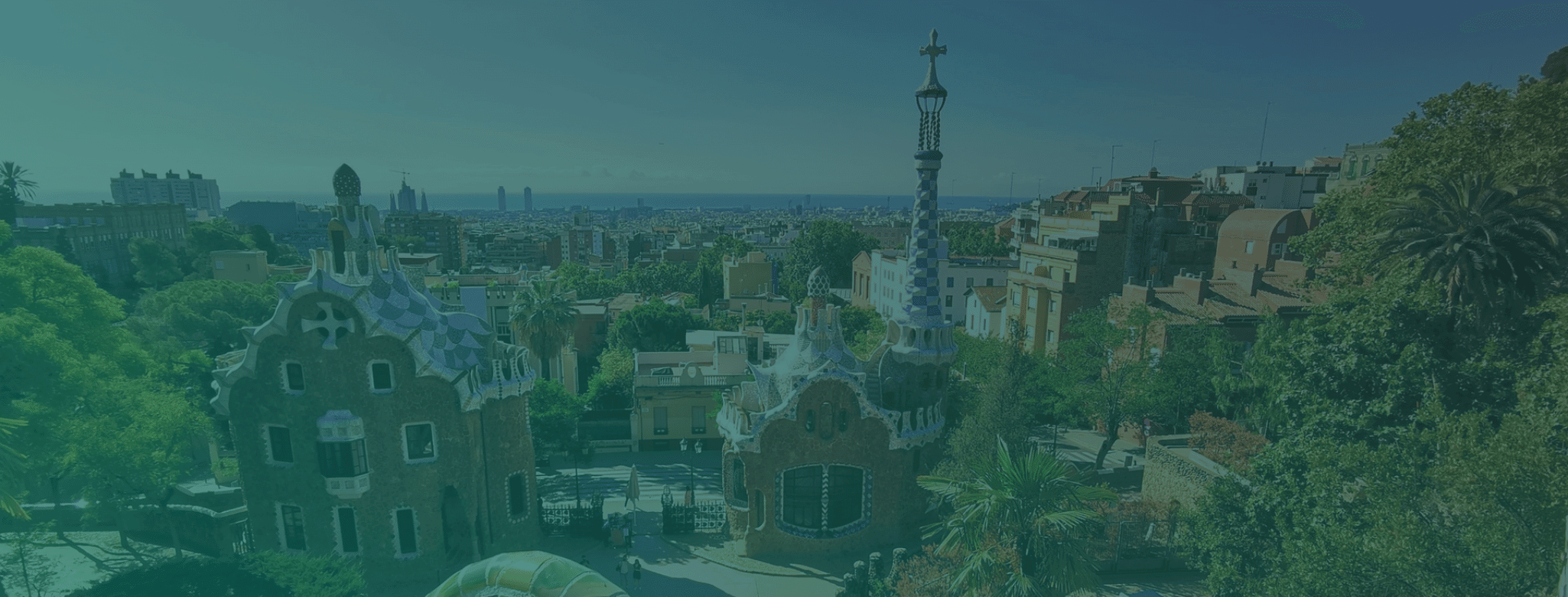
All You Need to Know Before Moving to Barcelona (+City Guide in PDF)
After living abroad for many years and having the experience of relocating to different countries, our team probably went through most of the questions you have in your mind. Working at a recruitment company where we constantly help people with their wishes to work and live abroad, we get the same questions very often. Good that we are living in Barcelona, we have all the answers to your questions! You can download our Barcelona City Guide here.
Let’s start: Get to know Barcelona!
Barcelona is one of the cities people visit once and keep dreaming about moving there one day. It’s charming with its great weather with an average of 3000 hours of sun per year, beautiful sandy beaches, delicious food and vibrant city life. With over 1.6 million population, this relatively small metropolitan city is full of life. 20% of the residents have foreign origins from 180 different nationalities. On top of that, the city attracts over 20 million visitors every year from all over the world which makes Barcelona an attractive destination for internationals. The official languages are Catalan and Spanish, nonetheless, in Barcelona, you can easily find people speaking English or even in your native language! Read more: 11 Curious Facts Barcelona
Time tables you might need for Barcelona
Opening hours for stores
Usually, Monday to Friday from 9:30 am to 1:30 pm and 4:30 pm to 8 pm with some variations. Many establishments have the same opening hours on Saturdays and some are open until lunchtime on Sundays. Shopping centres and many large stores do not close for lunch/siesta.
Eating schedules of locals
Spaniards tend to eat later than other Europeans. They usually have a light breakfast of fruit juice, coffee and a pastry or sandwich anytime between 7 - 11 a.m.
Lunch is most often between 2.00-3.30 pm. You can expect restaurants to be booked and crowded at these times. If you are working at an international company, your lunch times can be earlier than the local one.
And dinner… This is the fact that surprises the new expats and tourists the most. Many people in Barcelona have dinner usually between 8.30 - 11.00 p.m. If you want to socialise over dinners, make sure you either adapt to this biological cycle or snack before!
Bank holidays
1 January — New Year’s Day*
6 January — Epiphany*
March-April (movable) — Good Friday*
March-April (movable) — Easter Monday**
1 May — Labour Day*
May/June (movable) — Pentecost Monday***
24 June — Feast Day of St. John**
15 August — The Assumption*
11 September — Catalan National Day**
24 September — La Mercè Festival***
12 October — Spanish National Day*
1 November — All Saints’ Day*
6 December — Constitution Day*
8 December — Immaculate Conception*
25 December — Christmas Day*
26 December — Feast Day of St. Stephen (Boxing Day)**
* National holiday ** Regional holiday (Catalonia only) *** Local holiday (Barcelona only)

Barcelona Budget: Cost of Living
To live comfortably in Barcelona, on average you will need a monthly budget of 1250€. This budget can cover your accommodation, food, utilities, transport and on top of that can give you enough budget for entertainment costs. It’ll highly depend on your lifestyle and financial goals.
Eating out in Barcelona
Basic Breakfast Out: 3-5€
Menu of the Day: 10-15€
Sandwich: 2-4€
Basic Dining Out for 2: 20-30€
Expensive Dining Out for 2: 50-75€
Water (33cl bottle) in a bar/pub: 1-4€
Coke (33cl bottle) in a bar/pub: 1.5-4€
Coffee (espresso or with milk): 1.5-3€
Beer (50c draught): 2.5-3€
Beer (33cl bottle): 2.5-6€
Wine Bottle in a Restaurant: 8-20€
Cocktail: 4-10€
Supermarket prices
Bread/Baguette: 1€
Milk (regular): 1€
Water (1.5l bottle): 0.3-1.2€
Pack of Cigarettes: 5-7€
12-Pack (33cl) Domestic Beer: 8-10€
Round Steak (500gr): 5-8€
Chicken Fillets (500gr): 3-4€
Accommodation costs in Barcelona
1 Bedroom Flat Rent in Center: 800-1500€
3 Bedrooms Flat Rent in Center: 1500 - 3000€
1 Room Rent in a Shared Flat: 400-750€
Basic Utilities for 3 Bedrooms Flat: 80-200€
Transportation costs in Barcelona
One-Way Ticket: 2.4€
Monthly Pass: 40€
Airport Ticket: 5-6€
Taxi Trip (5-10km): 9-16€
Entertainment budget
Cinema Ticket for 1: 5-12€
Gym Monthly Fee: 25-60€
Club Entry (some free before 2 am): 10-20€
Theatre or Music Concert: 10-50€
All these expenses above mean nothing without the salary information, of course. If you are an entry-level professional you can learn about the wages in Barcelona in our salary guide.
Transportation in Barcelona
Public transport
Barcelona is a very well-connected city when it comes to public transportation. The main public transport operator in Barcelona is Transports Metropolitans de Barcelona (TMB) and to use any means of transport you will need one of these tickets below.
T-dia
No. of journeys: No limit
Validity: Daily
Price: 1 zone / €10.5
T-usual
No. of journeys: Unlimited
Validity: Monthly
Price: 1 zone / €40
Single Person
T-casual
No. of journeys: 10
Validity: When you finish
Price: 1 zone / €11.35
Single Person
T-jove
No. of journeys: Unlimited
Validity: Quarterly
Price: 1 zone / €80
For Under 25-year olds
For more ticket options, check here.

Did you know that at least the %52 of the population in Barcelona prefer walking or cycling for their trips within the city?
(Metropolitan Transportation Authority, 2016)
Cycling & Walking
With 195 km bike lanes, it’s easy to say that Barcelona is bike-friendly heaven. Bicing is urban transport based on the shared use of the bicycle. A simple, practical and sustainable service that you can use on your trips around the city. The annual payment varies between 35€ or 50€ per year depending on your selection.
Although Barcelona is a big city, you can easily find an enjoyable route to walk around to city as a means of transportation as long as you have time. The surrounding neighbourhoods like Sants-Montjuïc, Gràcia or Poblenou are only 30 to 45 minutes away from the city centre.
From/To Airport
The International Airport of Barcelona (El Prat) is located 12km from the city centre and there are many ways to reach there.
By Metro, Bus/Nitbus:
To get from the airport the newest and cheapest way to arrive in Barcelona is by Metro; is line L9 Sud. The ticket you need is included in T-dia, T-usual or T-jove but if you want a single ticket, an Airport ticket it will cost you €5.15. The bus is very convenient if you are not in a hurry since the 1 zone bus/metro ticket will take you there. Depending on your travel time you can choose bus or night buses (Nitbus/N). Buses with airports as one of their stations are 46, L77, L99, N16, N17, N18, PR1, PR2, and PR3. Don't forget to check out de time tables before your journey! To be sure, have a look at it here.
By Train:
The frequency is every 30 minutes, from approximately 6:00 am to 11:45 pm. The length of the trip is around 25 minutes. Normally you have to take R2, which stops at Sants, Passeig de Gràcia and Clot. This train leaves from Terminal 2. It costs the same as your metro pass. Check the schedule here.
By Taxi:
It takes approximately 30 minutes to reach the airport from the city centre. The approximate price is around 30-40€. Extra fees for luggage may be added.
By Aerobus:
It is one of the most preferred ways of Airport transportation due to its central stations (Plaça Catalunya and Plaça Espanya), travel frequency (every 5-10 minutes) and short travel time (25-30 minutes). You can check the schedules below. A1 stands for Terminal 1 and A2 is for Terminal 2. The single ticket costs 5,90€. More information is available here.
Housing in Barcelona
This is a topic that it’s difficult to summarise. It’s quite important to find the best place in a new city. You will need to research, visit, and re-research to find the best possible accommodation for you. First of all, start with these questions:
What’s the renting trend in Barcelona?
What’s the average cost of renting a room or flat in Barcelona?
What are the challenges I might stumble upon when hunting for rental accommodation in Barcelona?
Which sources should I use when looking for an apartment/housemate in Barcelona?
Which ones are the best neighbourhoods to live in in Barcelona?
You are lucky that we have answered ALL of them in a detailed article before.
Read more: Best neighbourhoods to live in Barcelona
Life in Barcelona: What to do?
Things to do in Barcelona are endless. You can spend all your time discovering in Barceloneta or other beaches in and close to Barcelona city or focusing on the classic to-do list including Gaudi attractions like La Sagrada Familia, Parc Güell and Casa Batlló, or pay a visit to FC Barcelona stadium Camp Nou. All these tourist attractions can be found everywhere. Instead, here we will give you some suggestions from our personal favourites.
The Plaza de Sant Felip Neri
This small square became one of those places of serenity and silence full of meaning: A reflective space in the middle of the Gothic district. In the façade of the Church, one can still observe the holes caused by shrapnel impacts from the aerial attack of 1938.
Bunkers del Carmel
Famously known as “the bunkers” is a viewpoint over the city of Barcelona that, until recently, was not well known by the people. In this lookout, we find the remains of an anti-aircraft battery of the Spanish Civil War. It is located at the top of Turó de la Rovira, in the neighbourhood of Carmel. Famous for their wonderful views over the city. You should not miss it!
The anti-aircraft shelters
The civil war of 1936 and its bombings forced Barcelona to build these shelters in the subsoil of the city to assure the survival of the Catalan population. Today, some of these air raid shelters are open to the public. For example, the Refuge of the Plaza del Diamante was built at 13 meters in depth, with a length of 250 meters and a capacity for 200 people. To visit it you have to make a previous reservation.
Laberint d’horta;
It is a historic and protected garden in the city. It is a magical and mysterious park, located in the Horta-Guinardó district of Barcelona, on the outskirts of the city, at the foot of the Collserola mountain. It is formed by a neoclassical garden, another romantic garden and a spectacular labyrinth of cypresses, all dotted with statues with mythological allegories.
Parque de Montjuïc:
The mountain of Montjuïc has been a testimony and protagonist of transcendental events, which has given it its current character. First, there was the International Exhibition held in Barcelona in 1929. More recently, there was the celebration of the 1992 Olympic Games which led to a major renovation. In Montjuïc, you can visit museums such as the Fundació Miró, the Museu d'Arqueologia, l'Etnològic and the National Art Museum of Catalunya-MNAC, housed in National Palau. Also interesting to visit are, the Pavello Mies van der Rohe, the CaixaForum exhibitions, the Magic Fountain, Poble Espanyol and Palau Sant Jordi.

Did you know that there are more than 2000 buildings in the style of Modernism (Catalan Art Nouveau) in Catalonia and there are 9 UNESCO world heritage sites and 56 museums?
(UNESCO & Barcelona City Council, 2017)
Culture in Barcelona
Barcelona is one of the most impressive places in Spain for art and architecture. From the Catalan Gothic, the Renaissance period or the Baroque until the 20thcentury artist like Pablo Picasso, Joan Miró, Salvador Dalí and Antoni Tàpies. Apart from the famous monuments as La Sagrada Familia, L’Esglèsia de Santa Maria del Mar, Parc Guell, el Palau de la Música Catalana or la Torre Agbar; we can also find plenty other famous masterpieces such as La Casa Batlló, La Pedrera or el Pavelló Mies van der Rohe.
We would like to give you some recommendations for some outstanding museums in Barcelona:
MACBA (Barcelona Museum of Contemporary Art) located in Ciutat Vella, with a collection of more than 5.000 masterpieces from the mid-20th century onwards.
MNAC (National Art Museum of Catalonia) located on Montjuic, near Plaza España. It includes Romanesque paintings as well as Modernism and Noucentisme styles.
The Picasso Museum, which is located in el Born and is housed in a medieval edifice. It includes the largest exhibition of the author.
Learn more about the free museum entrances in Barcelona here.
Fascinating celebrations and traditions in Barcelona:
Tió de Nadal: It’s a Catalan Christmas tradition involving hitting a trunk of a tree with a cane. During the Christmas period, kids “feed” the log with sweet snacks, take care of it with blankets and love to let it “defecate” all the candies on Christmas day.
The Twelve Grapes of Luck: On New Year’s Eve many families and friends come together to celebrate the new year with a countdown, so far familiar. Here, when you hear the twelve chimes, you should eat a grape each time it rings. It’s believed to bring good luck, try not to choke on the grapes!
Els Reis: Another religious celebration for children is on the night of the 5th of January when the Three Kings arrive from Jerusalem bearing gifts for everyone, young and old. Expect a Christmas gift from your Catalan friends on that day instead of December 25th.
San Jordi: As the patron saint of Catalonia, Sant Jordi has a special celebration coming from its legend. This day, April 23, is also known as Catalan Valentine’s day and traditionally women and men exchange roses and books. Learn more about it here.
San Juan: The night of the 23rd of June, the night before St. John's day is called “verbena”. The tradition combines bonfires, firecrackers, and bakeries to sell a special cake called Coca de Sant Joan. If you like loud sounds and crowds, find the celebrations on the beach!
All Saints Day: 1st of November is dedicated to death and the dead, as in “El Dia de Los Muertos”. In Catalonia, the tradition is to ea “Panellets” and “castanyes”, baked buns and chestnuts to celebrate “La Castanyera”.
Pa amb tomàquet: It is one of the traditional tapas and it is made of a toast of bread with a squeezed tomato on it. It seems basic, but we are sure you will like it!
Vermut: It is a wine macerated in herbs served during the aperitif, composed of white wine and other bitter substances. Traditionally, the locals drink vermouth before the meal, in order to arouse the appetite. Of course, and how could it be otherwise, always together with a good “tapa”.
Festa Major: These are the town ceremonies of the different villages of Catalonia, there is the tradition to do two different important cultural celebrations. On the one hand, “Els Castells”, which is the famous human tower. On the other hand, there is the traditional dance called “La Sardana” which is a type of circle dance, normally combined with a Sardana band called “cobla”.
La siesta: It is a period of time (approximately 20 to 30 minutes) when people sleep or rest after eating, as you probably know. It is gradually becoming very popular among foreigners. It is scientifically proven that siesta improves health, circulation, and concentration and prevents stress
Job Opportunities in Barcelona
Last but not least, Barcelona has many growing job markets you can easily fit in. Especially in the last decade, it became more and more attractive both for business and talents. We call it a meeting point for international professionals and multinational companies as it is! If you are looking for a challenging and inspiring work experience abroad check our job opportunities in Barcelona and let us know about your job hunt!
Don’t forget to download our Barcelona City Guide to keep all the information you need for your new adventure in Barcelona or get in touch with us to learn more!
Read more about this:
